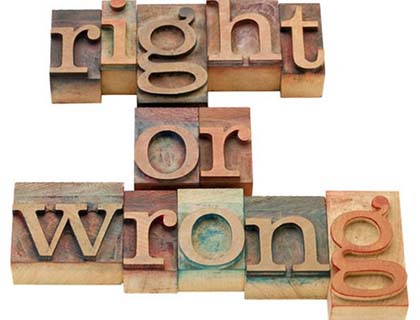There are myriads of societies living in our world. Each one has its own characteristics. However, it should be noted that no society is perfect. Every society has certain evils and disadvantages. Some may have a large number of these problems while others may have only few. The societies with lesser evils and disadvantages are considered as the best societies. Therefore, every society, by maintaining its own distinction and uniqueness, strives to put an end to these evils, which basically guarantees the society's evolution. However, it is important that the society must realize that there are evils in it and they are to be eradicated.
Social evils are the factors that may disrupt the social life to a large extent. They have the capacity to introduce disturbances and troubles in the lives of the individuals inhabiting the society and the overall social norms, values, relations and activities. Some of the dominant social evils include poverty, crime, corruption, drug addiction, juvenile delinquency, robbery, theft, begging and many others. Some of these evils are closely inter-related and have the cause and effect influence over one another. Nonetheless, all of these evils join hands together to challenge the civilized and better living conditions in human societies.
There cannot be one particular reason behind the social evils. There are different reasons that are responsible for introducing these evils and incapacitating a society to perform well for its inhabitants. One of the basic reasons is the absence or weak adherence of rules and regulations. Without proper rules and regulations that are based on justice and fair-play, it would be very difficult to have a society without social evils.
Most of societies in the modern world enact their rules and regulations through a system of law and order. Strong law and order system strives to achieve justice and minimize the social evils. Through effective law enforcing agencies, including police, courts and prisons, an active law and order system makes utmost effort that justice is served to the people. The ones who are culprit must be punished while the ones who are innocent must not suffer ill treatment.
However, there are many other arguments that suggest that law and order system alone does not guarantee the eradication of social evils; some who possess extreme opinion even suggest that the law and order system itself is responsible for giving birth to so many social evils. Even a moderate view would suggest that a law and order system not based on true justice fails to eradicate the social evils. Talking about the real, it can be observed in the some of the present societies of the world that law and order system tends to favor few while discriminating others.
The favored few are mostly the part of the ruling elite. Due to their authority in the society they tend to over-power the law and order system. Therefore, the law enforcement agencies fail to bring them to justice and trail them for their crimes and misdeeds. This phenomenon also generates a sort of feeling of dissatisfaction in the common people who, looking at the biased system, tend to have no confidence in them and avoid pursuing the rules and regulations. However, most of them are not able to escape the biased law and order system.
Some of the views also suggest that social evils are the outcome of the corrupt human nature, rather than the unjust and inappropriate social system. They suggest that human beings are corrupt by their nature and tend to commit crimes and corruption as a part of their nature. However, it is really hard to believe such an opinion. Though some individuals may have abnormalities at their birth, which cause social disorder in them and they are not able to play constructive role in the society, they are only occasional and can well be counted in exceptions.
Otherwise, mostly human beings are born with an innocent nature and their social orientation decides whether they become criminals or social workers. However, this does not suggest that human beings are totally determined to commit crime. On certain occasions, crimes and other evils that they commit are a part of their choice, which they make from amongst the available choices. At the same time, it is important what choices are available in a society for an individual to choose from.
To control social evils, punishment is considered as one of the most effective ways. However, there can be a circumstantial debate on what should be the nature of the punishment and how it should be conducted. It is important the punishment should make a culprit amend himself/herself. If the punishment further worsens the attitude of the offender, it cannot to be said to have served its purpose. It, then, rejects its own philosophy and must be altered. Nonetheless, this is not to suggest that there should not be any punishment.
Another way of controlling or eradicating social evils can be through the values that are disseminated by the social institutions. The social institutions can inculcate within the individuals the awareness about the evils and the ways to avoid them. Among the social institutions, families and education systems can play an important role in this regard. Family, being the primary institution for an individual, can make an individual socially acceptable and guide his/her attitude in such a way that he/she becomes a positive member of society. Then there are educational institutions.
They can play a tremendous role in establishing the characters of the individuals and making them aware so that they are able to make better choices in the society that may not benefit their individual lives but the social life as well. The roles of cultural and social institutions are also of utmost importance in this regard. They have high social value and influence and through the same they can bring about positive changes in the society by making the members of society abhor and avoid social evils and condemn them in every possible manner.

